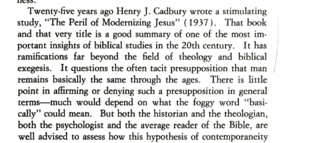Edited, memorised or added to reading queue
on 07-Sep-2016 (Wed)
Do you want BuboFlash to help you learning these things? Click here to log in or create user.
| status | not read | reprioritisations | ||
|---|---|---|---|---|
| last reprioritisation on | suggested re-reading day | |||
| started reading on | finished reading on |
| status | not read | reprioritisations | ||
|---|---|---|---|---|
| last reprioritisation on | suggested re-reading day | |||
| started reading on | finished reading on |
| status | not read | reprioritisations | ||
|---|---|---|---|---|
| last reprioritisation on | suggested re-reading day | |||
| started reading on | finished reading on |
| status | not read | reprioritisations | ||
|---|---|---|---|---|
| last reprioritisation on | suggested re-reading day | |||
| started reading on | finished reading on |
| status | not read | reprioritisations | ||
|---|---|---|---|---|
| last reprioritisation on | suggested re-reading day | |||
| started reading on | finished reading on |
| status | not read | reprioritisations | ||
|---|---|---|---|---|
| last reprioritisation on | suggested re-reading day | |||
| started reading on | finished reading on |
| status | not read | reprioritisations | ||
|---|---|---|---|---|
| last reprioritisation on | suggested re-reading day | |||
| started reading on | finished reading on |
| status | not read | reprioritisations | ||
|---|---|---|---|---|
| last reprioritisation on | suggested re-reading day | |||
| started reading on | finished reading on |
| status | not read | reprioritisations | ||
|---|---|---|---|---|
| last reprioritisation on | suggested re-reading day | |||
| started reading on | finished reading on |
| status | not read | reprioritisations | ||
|---|---|---|---|---|
| last reprioritisation on | suggested re-reading day | |||
| started reading on | finished reading on |
| status | not read | reprioritisations | ||
|---|---|---|---|---|
| last reprioritisation on | suggested re-reading day | |||
| started reading on | finished reading on |
| status | not read | reprioritisations | ||
|---|---|---|---|---|
| last reprioritisation on | suggested re-reading day | |||
| started reading on | finished reading on |
| status | not read | reprioritisations | ||
|---|---|---|---|---|
| last reprioritisation on | suggested re-reading day | |||
| started reading on | finished reading on |
| status | not read | reprioritisations | ||
|---|---|---|---|---|
| last reprioritisation on | suggested re-reading day | |||
| started reading on | finished reading on |
| status | not read | reprioritisations | ||
|---|---|---|---|---|
| last reprioritisation on | suggested re-reading day | |||
| started reading on | finished reading on |
| status | not read | reprioritisations | ||
|---|---|---|---|---|
| last reprioritisation on | suggested re-reading day | |||
| started reading on | finished reading on |
Article 1387107323148
Exercising When Sick: A Good Move?
#exercise #has-images #health
http://www.webmd.com/cold-and-flu/features/exercising-when-sick webmd.com Read Later by Denise Mann 2 min read original [Open in BuboFlash] You're not feeling your best. Should you exercise when sick or sit this one out? How to decide. Reviewed by Louise Chang, MD WebMD Feature Archive You have been so great about your new exercise routine, rarely missing a day since you started up again. Then all of a sudden you are waylaid by a cold or flu. What should you do? Should you skip the treadmill or forsake that Pilates class for a late afternoon nap? Will it be hard to get started again if you skip a day or two? Recommended Related to Cold & Flu Flu Shots: It's Not Too Late It's December and everywhere you look friends and family are down with flu symptoms: fevers, body aches, and fatigue. If you're still feeling pretty chipper yourself, great! But if you want to hedge your bets, it's good to know that even though flu season is in full swing, it's not t
Article 1387109158156
Why You Shouldn't Work Out When You're Sick
#exercise #has-images #health
breakingmuscle.com Read Later http://breakingmuscle.com/health-medicine/why-you-shouldnt-work-out-when-youre-sick Why You Shouldn't Work Out When You're Sick by Eric C. Stevens 4 min read original A couple of weeks ago, I started coming down with a nasty bug. As Friday rolled around, I still felt not so hot and talked with my coworker about what to do regarding my upcoming weekend plans of snowboarding in the mountains. “You might as well go the mountains,” my coworker said. “You can be sick in the mountains or you can be sick at home in bed.” Feeling the point was valid, I packed up my snowboard and headed with friends up to the Rockies. As I shivered by the fire at the mountain cabin a few hours later, my weekend trip suddenly didn’t feel like such a great idea. Looking at the faces of my friends who were witnessing my violent coughing and trips to the bathroom corroborated what I knew to be true - I shouldn’t have been there. I should have been at home resting. Sometimes
| status | not read | reprioritisations | ||
|---|---|---|---|---|
| last reprioritisation on | suggested re-reading day | |||
| started reading on | finished reading on |
Exercising When Sick: A Good Move?
to add: "The general rule is that if it is just a little sniffle and you take some medications and don't feel so sick, it's OK to work out. But if you have any bronchial tightness, it's not advisable to be working out." <span>You really need to know your limits, she says. "If you are feeling kind of bad, you may want to consider a walk instead of a run. Take the intensity down or do a regenerative activity like yogaor Pilates because if you don't feel great, it may not be the best day to do your sprints," says Coopersmith, the author of Fit and Female: The Perfect Fitness and Nutrition Game Plan for Your Unique Body Type. "A neck check is a way to determine your level of activity during a respiratory illness," adds Neil Schachter, MD, medical director of respiratory care at Mount Sinai Medical C
| status | not read | reprioritisations | ||
|---|---|---|---|---|
| last reprioritisation on | suggested re-reading day | |||
| started reading on | finished reading on |
Exercising When Sick: A Good Move?
vity like yogaor Pilates because if you don't feel great, it may not be the best day to do your sprints," says Coopersmith, the author of Fit and Female: The Perfect Fitness and Nutrition Game Plan for Your Unique Body Type. <span>"A neck check is a way to determine your level of activity during a respiratory illness," adds Neil Schachter, MD, medical director of respiratory care at Mount Sinai Medical Center in New York. "If your symptoms are above the neck, including a sore throat, nasal congestion, sneezing, and tearing eyes, then it's OK to exercise," he says. "If your symptoms are below the neck, such ascoughing, body aches, fever, and fatigue, then it's time to hang up the running shoes until these symptoms subside." You're not feeling your best. Should you exercise when sick or sit this one out? How to decide. WebMD Archive How Long Will You Be Sidelined?
| status | not read | reprioritisations | ||
|---|---|---|---|---|
| last reprioritisation on | suggested re-reading day | |||
| started reading on | finished reading on |
Exercising When Sick: A Good Move?
n general, the flu, even if uncomplicated, can make you feel pretty rotten for 10 days to two weeks. Prevention Prescription The best way to avoid the problem is not to get sick in the first place. <span>Exercise in general can help boost your body's natural defenses against illness and infection, Schachter says. "Thirty minutes of regular exercise three to four times a week has been shown to raise immunity by raising levels of T cells, which are one of the body's first defenses against infection. However, intense 90-minute training sessions like those done by elite athletes can actually lower immunity." Gym Etiquette When Exercising With a Cold It's one thing if you decide to exercise when sick, but how do you keep from spreading it to others in the gym? And what about you
| status | not read | reprioritisations | ||
|---|---|---|---|---|
| last reprioritisation on | suggested re-reading day | |||
| started reading on | finished reading on |
Why You Shouldn't Work Out When You're Sick
od, then why not. Conversely, the opposite is considered to be true - if you’re really sick (for instance, the flu), you should probably not work out as you could be doing more harm than good. Time to Do a Neck Check <span>According to Thomas Weidner, head of athletic training at Ball State University, you should perform what’s called a neck check. That is, when determining whether or not to exercise, if your symptoms are above the neck - sneezing, sore throat, and runny nose - then it’s probably okay to work out. Weidner drew his conclusion from two different controversial studies in which his subjects were actually infected with thecommon cold. Evaluating his subjects in a controlled environment, he determined their symptoms were no worse (or better) for exercising while being ill. In fact, the group that exercised, versus the group that didn’t, reported feeling slightly better after exercising. Of course there are benefits to working out in general as it relates to our health. Specifically, exercise is a scientifically proven immunity booster. Exercising regularly may help you
| status | not read | reprioritisations | ||
|---|---|---|---|---|
| last reprioritisation on | suggested re-reading day | |||
| started reading on | finished reading on |
Why You Shouldn't Work Out When You're Sick
a controlled environment, he determined their symptoms were no worse (or better) for exercising while being ill. In fact, the group that exercised, versus the group that didn’t, reported feeling slightly better after exercising. <span>Of course there are benefits to working out in general as it relates to our health. Specifically, exercise is a scientifically proven immunity booster. Exercising regularly may help you avoid getting sick in the first place. In a study at the University of South Carolina, adults who exercised regularly and moderately caught twenty percent fewer upper respiratory tract infections. That said, while exercising moderately can boost immunity, the opposite is also true. Intense and vigorous exercise can increase your susceptibility to being sick. While all of this is well and good, it’s not necessarily news. It’s common sense that we should exercise for boosting our immunity when we’re not sick and that we should rest to boost our immunity when we are sick. Why Am I Sick to Begin With? In my estimation, the question of exercising when we are sick isn’t the right question to ask in the first place. A more valid question might b
| status | not read | reprioritisations | ||
|---|---|---|---|---|
| last reprioritisation on | suggested re-reading day | |||
| started reading on | finished reading on |
Why You Shouldn't Work Out When You're Sick
f whack. While we simplify being sick to the bad luck of “catching” a cold, there is much more to the story. The problem lies in our reactive societal approach to health and wellness in general - treating symptoms versus causes. <span>Many experts concur that the ultimate cause of sickness is stress. Stress produces the hormone cortisol, and cortisol turns off the production of cytokines, the molecules that encourage an aggressive immune response. While there are many ways to alleviate and manage stress (exercise being a key one), there are few ways to actually solve it. However, if stress is the root of what ails us, then why not take being sick as an opportunity to tackle stress head on versus avoiding or masking it? Exercising while being sick potentially does just that- masks the fact that you really don’t feel well. Furthermore, exercising when sick certainly doesn’t aid your recovery process. So why do it? While exercising when we’re ill may help us feel better for the moment, it hardly helps us slow down to see the bigger picture of our health. Though perhaps not a popular opinion, I almost think we’re supposed to get sick on occasion. Our ultimate job in sickness is to learn and grow from the setback, as we should any challenge in life. If you’re sick here’s a few tips for making your way through it and being truly better on the back end: Lean into sickness. As tempting as it is to mask every symptom of si










